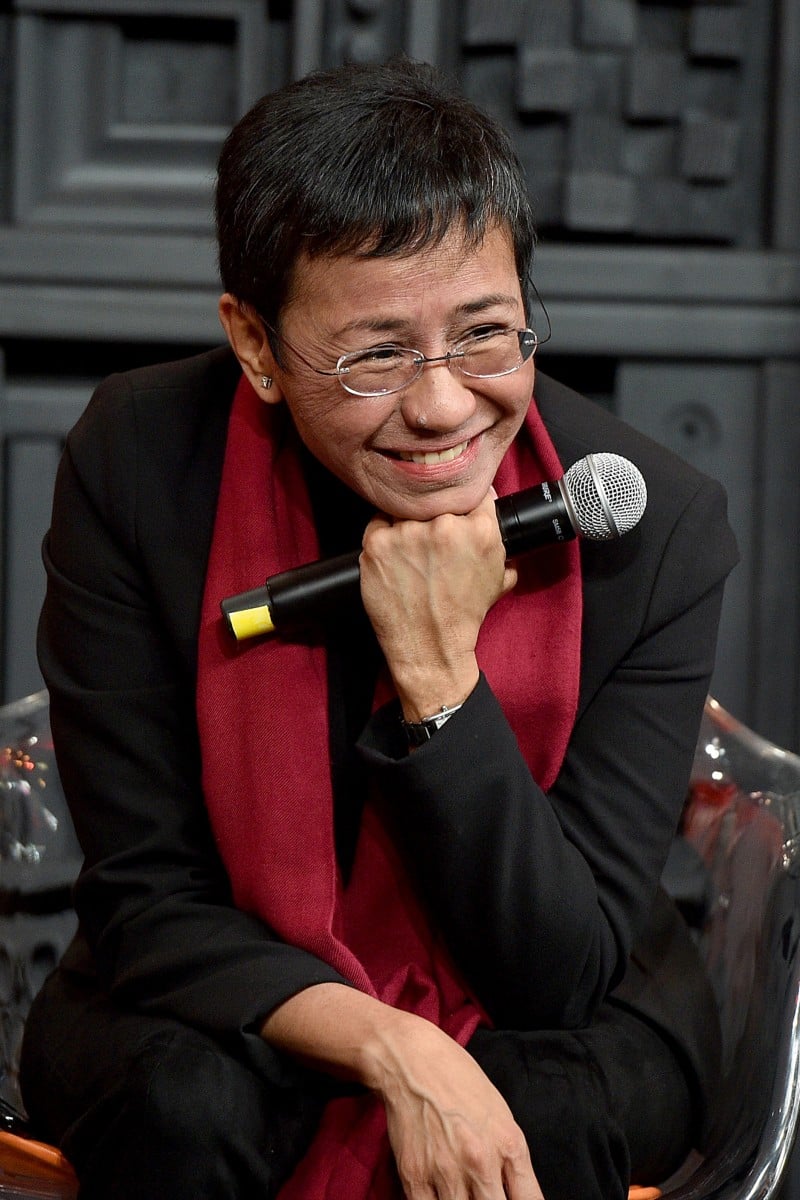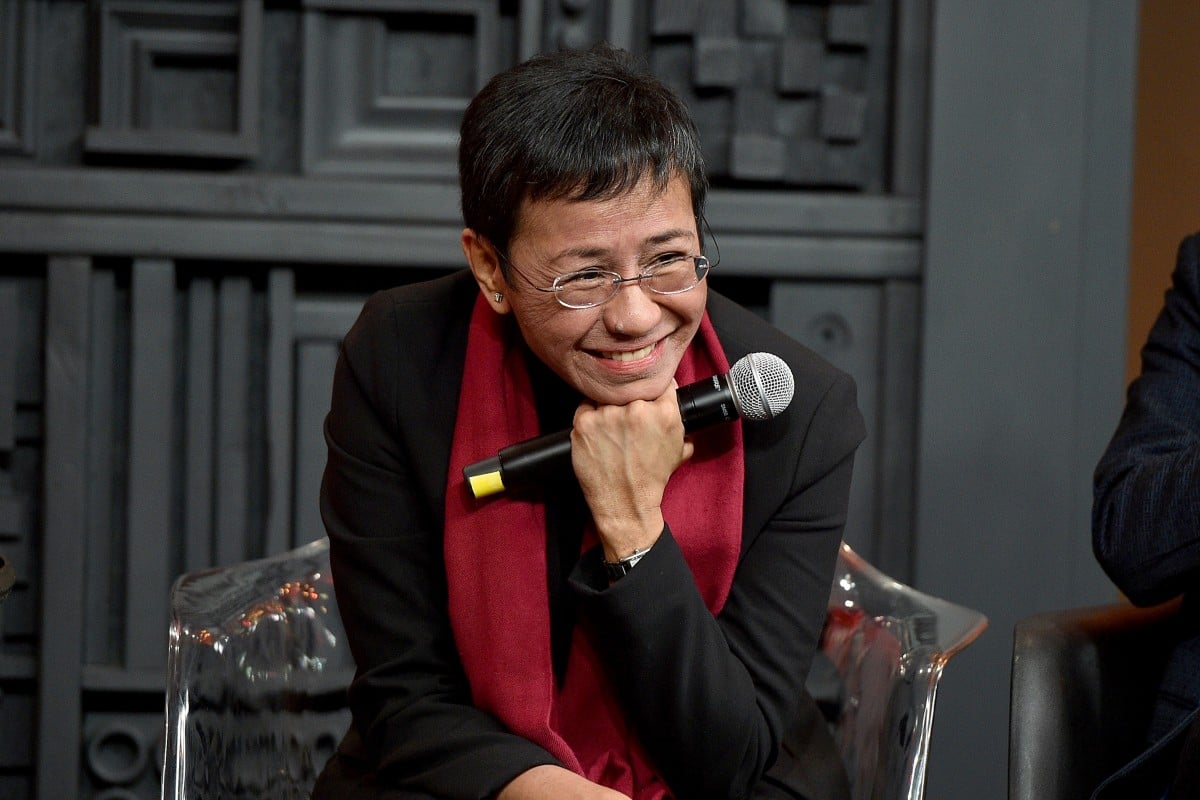
Journalists Maria Ressa, from the Philippines, and Dmitry Muratov, from Russia, win Nobel Peace Prize
- Journalists Maria Ressa of the Philippines and Dmitry Muratov of Russia take home the Nobel Peace Prize
- The two are recognised for their fight for the freedom of expression
 Maria Ressa, founder of the Rappler news site in the Philippines, wins the Nobel Peace Prize. Photo: Getty Images
Maria Ressa, founder of the Rappler news site in the Philippines, wins the Nobel Peace Prize. Photo: Getty ImagesThe 2021 Nobel Peace Prize was awarded Friday to journalists Maria Ressa of the Philippines and Dmitry Muratov of Russia for their fight for the freedom of expression.
The winners were announced Friday by Berit Reiss-Andersen, chair of the Norwegian Nobel Committee.
“Free, independent and fact-based journalism serves to protect against abuse of power, lies and war propaganda,” said Reiss-Andersen.
Maria Ressa: Philippine journalist and Duterte-critic convicted of libel
“Without freedom of expression and freedom of the press, it will be difficult to successfully promote fraternity between nations, disarmament and a better world order to succeed in our time.”
Ressa in 2012 co-founded Rappler, a news website that has focused “critical attention on the (President Rodrigo) Duterte regime’s controversial, murderous anti-drug campaign,” the Nobel committee said.
She and Rappler “have also documented how social media is being used to spread fake news, harass opponents and manipulate public discourse.”
Muratov was one of the founders of the independent Russian newspaper Novaya Gazeta in 1993.
“Novaya Gazeta is the most independent newspaper in Russia today, with a fundamentally critical attitude towards power,” the Nobel committee said.
“The newspaper’s fact-based journalism and professional integrity have made it an important source of information on censurable aspects of Russian society rarely mentioned by other media,” it added.
Kremlin spokesman Dmitry Peskov congratulated Muratov on winning the prize, hailing him as a “talented and brave” person.
“We can congratulate Dmitry Muratov – he has consistently worked in accordance with his ideals, he has adhered to his ideals, he is talented and brave. It’s a high appraisal and we congratulate him,” Peskov said in a conference call with reporters after the prize was announced.
The prestigious award is accompanied by a gold medal and 10 million Swedish kronor (over $1.14 million). The prize money comes from a bequest left by the prize’s creator, Swedish inventor Alfred Nobel, who died in 1895.
On Monday, the Nobel Committee awarded the prize in physiology or medicine to Americans David Julius and Ardem Patapoutian for their discoveries into how the human body perceives temperature and touch.
The Nobel Prize in physics was awarded Tuesday to three scientists whose work found order in seeming disorder, helping to explain and predict complex forces of nature, including expanding our understanding of climate change.
Benjamin List and David W.C. MacMillan were named as laureates of the Nobel Prize for chemistry Wednesday for finding an easier and environmentally cleaner way to build molecules that can be used to make compounds, including medicines and pesticides.
The Nobel Prize for literature was awarded Thursday to UK-based Tanzanian writer Abdulrazak Gurnah, who was recognised for his “uncompromising and compassionate penetration of the effects of colonialism and the fate of the refugee.”
Still to come Monday is the prize for outstanding work in the field economics.